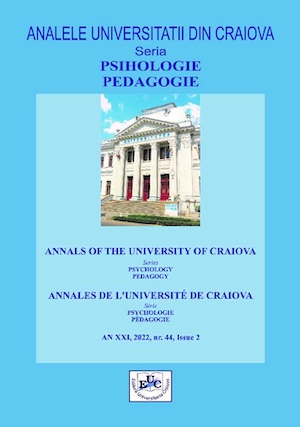TRAME CONCEPTUELLE D’UN CURRICULUM DE FORMATION : UNE EXIGENCE POUR L’APPROPRIATION DES CURRICULA DES ÉCOLES NORMALES D’INSTITUTEURS DE L’ENSEIGNEMENT GÉNÉRAL (ENIEG) AU CAMEROUN
CONCEPTUAL FRAME OF A TRAINING CURRICULUM: A REQUIREMENT FOR THE APPROPRIATION OF TEACHER TRAINING SCHOOLS FOR GENERAL EDUCATION’
CURRICULA IN CAMEROON
Author(s): Anne MatouweSubject(s): School education, Pedagogy
Published by: Editura Universitaria Craiova
Keywords: Curriculum; Conceptual framework; Professionalism; Emerging effects; Student-teachers;
Summary/Abstract: The contribution aims to examine the role and meaning of the conceptual framework in the operation of a training curriculum according to the Competency Based Approach (CBA). Indeed, the CBA obeys a triple logic: curricular logic, logic of action in situation and logic of learning. It is the articulation of these levels of logic that gives rise to a way of designing curricula and at the same time makes it coherent. Empirically, the curricula of Teacher Training Schools for General Education in Cameroon follow a framework that is based on the logic of skills, it is said. On the other hand, the class practitioners, unable to identify the links between the components of the curriculum articulated according to the CBA, exploit it according to the forms of didactic work which recall the approach by content subjects or Pedagogy by Objectives. Hence, at the level of operationalization, the difficulties they have in exploiting it with a view to positioning or acting on the professional development of student teachers, better on their professionalism. The study analyzes the articulation between the Curricular Organization Framework, the Learning Organization Logic and the Transversal Objects (components of the conceptual framework). The research is based on a documentary analysis of Teacher Training Schools for General Education’ curriculum. The analysis reveals a set of pitfalls that make it difficult for classroom practitioners to implement training curriculum. They summon the open, continuous, contextual and pragmatic character of their “models”.
Journal: Analele Universității din Craiova, seria Psihologie-Pedagogie
- Issue Year: 44/2022
- Issue No: 2
- Page Range: 35-48
- Page Count: 14
- Language: French

